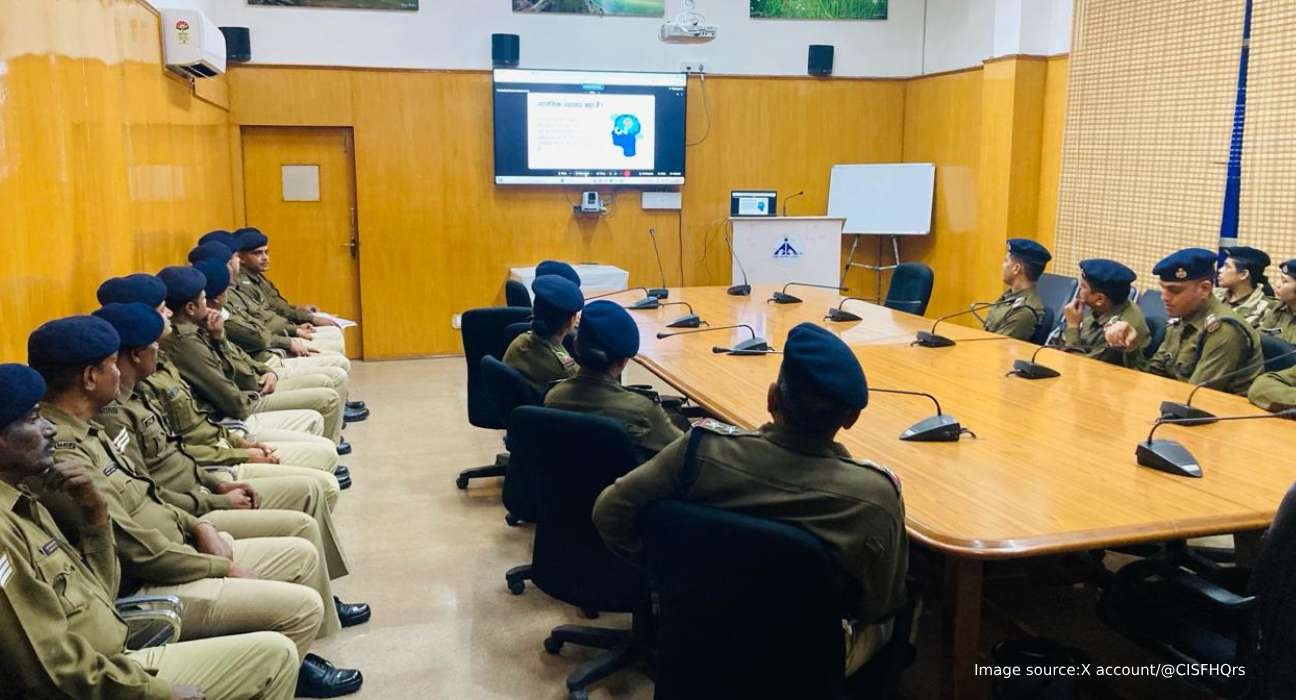Under project MANN, a webinar on mental health awareness was broadcasted for the staff of personnel CISF Unit ASG Jodhpur. Participants received counseling about stress-free living, lifestyle habits as well as holistic health. The general opinion of the public’s mental health has improved in the past few years. However, because mental illness has remained strongly stigmatized, hardly anyone with mental health issues receives treatment.
Aditya Birla Education Trust supports project MANN, with partnership of Central Industrial Security Force (CISF), which is a comprehensive mental well-being program. It has two dual goals which address the mental health issues faced by the personnel existing nationally as well as ensuring that these services accessible and sustainable.
Also Read: Army will not tolerate homosexuality adultery in its ranks
Mental health of army staff
Soldiers and armed force members may be prone to mental health issues. When people are stay away from home for a long time as well as facing the challenges of adjusting to civilian life and exposure to very stressful events have an impact on their mental health. People might face problems at the same time or a long time later. A large number of personnel do not experience mental health issues when they are on the service or later. On the other hand, specific experiences in the armed forces may result in mental health problems. These experiences are such as body injuries, working in risky and stressful conditions, apart from family and friends for a long period etc.
Anxiety, depression as well as alcohol consumption is the most prevalent mental health issues faced by the personnel. Some of them also experience post-traumatic stress disorder (PTSD). When they leave the armed forces, few of them face – issues in relationships and with family, social exclusion as well as homelessness.
Also Read: Did Abraham Lincoln suffer from Depression?
Challenges faced by the armed forces
- Stress related to battle: Being, exposed to battle environments can result in a multiple kind of serious responses to stress, such as depression, anxiety or post-traumatic stress disorder (PTSD). During deployment, they may witness or experience horrible events which cause long-lasting psychological impacts.
- Long separation: Deployments in the armed forces frequently include prolonged separation from family as well as loved ones. This prolonged separation might result in the emotions of loneliness, distress as well as isolation, especially during major homecoming events or milestones.
- Substance abuse: While dealing with stress, trauma, or mental health issues, armed force members adapt to the consumption of drugs or alcohol. Substance abuse may worsen existing mental health problem, generate issues with judgment and decision-making as well as have an adverse impact on their overall well-being.
- Suicidal risk: Army officers have a greater risk of suicide in comparison to the general population. The higher rate of suicide risk is caused by a variety of factors, such as interpersonal issues, exposure to trauma, relationship stress, weapon access, as well as untreated psychological issues. Suicide prevention measures are crucial for safeguarding service members’ well-being.
- Family stress: They experience mental health hardships, involving the stress caused by frequent movements, being away from a service member during a deployment etc. The lifestyle of army members may cause adjustment problems, anxiety and depression among their partners and children.
Also Read: How to Support the Mental Health of Military Personnel
Maintaining both readiness and effectiveness in the army officers calls for enhancing their mental health as well as well-being. It is important to treat mental health issues for a better lifestyle.
Sources+
- X (formally twitter) account: CISF https://twitter.com/CISFHQrs/status/1755505257998610893
- www.healthysoch.com
- www.mentalhealth.org.uk
